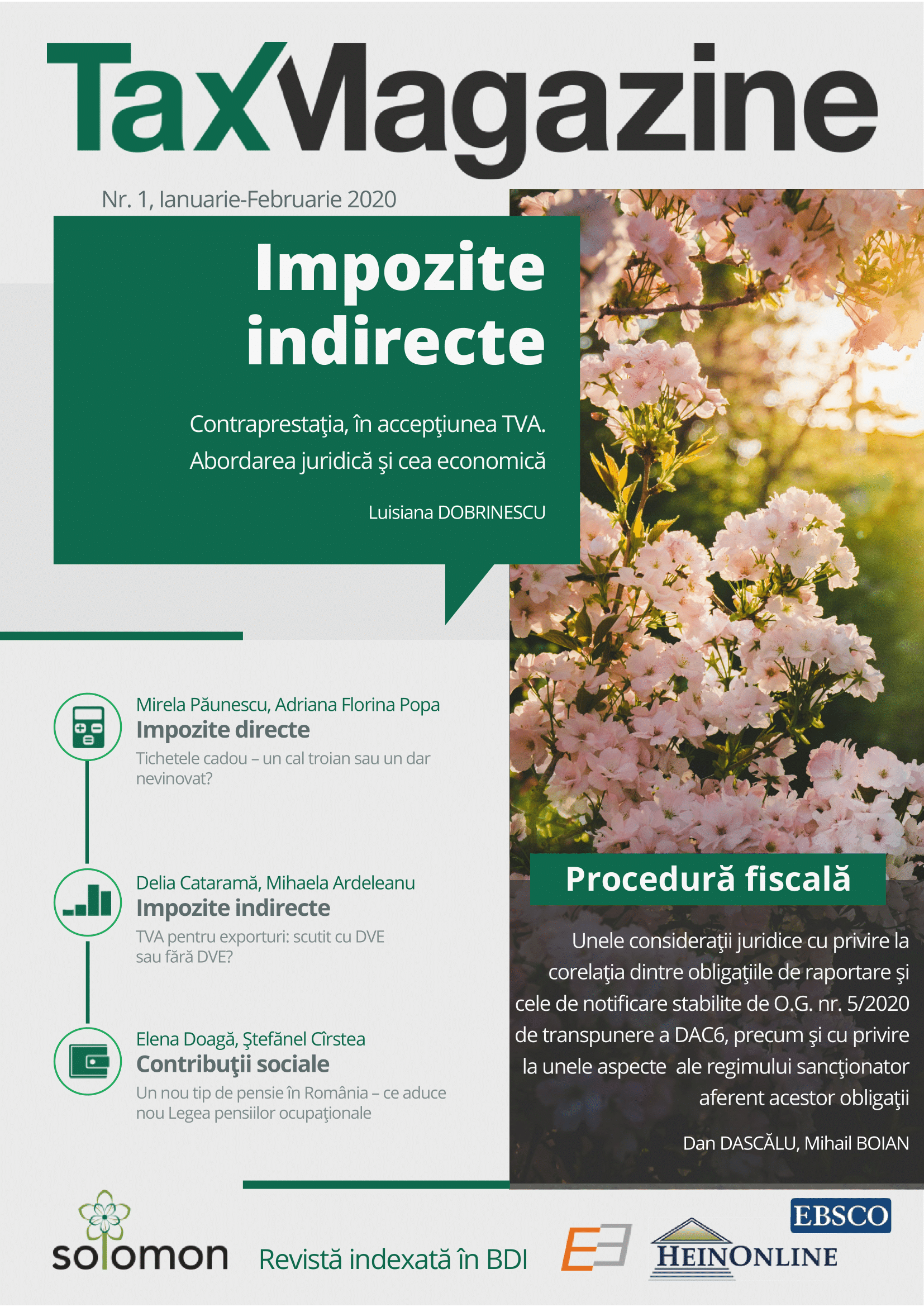Contraprestația, în accepțiunea TVA. Abordarea juridică și cea economică
The consideration, in the VAT acceptance The legal and economic approach.
Author(s): Luisiana DobrinescuSubject(s): Civil Law, EU-Legislation, Commercial Law
Published by: Editura Solomon
Keywords: VAT; economic approach; taxation; civil law; value added tax;
Summary/Abstract: Designed as a consumption tax, VAT is borne by the final consumer of goods and services. All taxable persons who participate to the economic cycle of product manufacturing or service provision within the scope of taxation have the obligation to calculate the value added tax. Neutrality, its general nature and the impact on final consumption are the true economic principles of European VAT. The VAT legislation has been designed to serve these principles. As the common market of the European Community expanded, the VAT legislation was obliged to establish its own dictionary of terms, in order to allow a harmonized application of VAT, regardless of the specificity of national civil law systems. Over the time, the European legal framework regulating the VAT has crystallized its principles, but it has become even more complex, due to the continuous increase of the complexity and variety of commercial transactions. At present, at European level, VAT is a standalone legal system, which aims to achieve the same objective as in the beginning: the fractional taxation of the final consumer. This VAT right is built on solid civil law rules, utilize all the principles of European law (equal treatment, free movement, non‑distortion of competition etc.) and, when appropriate, receives the final approval of the European Court of Justice.
Journal: Tax Magazine
- Issue Year: 2020
- Issue No: 1
- Page Range: 22-30
- Page Count: 9
- Language: Romanian
- Content File-PDF

